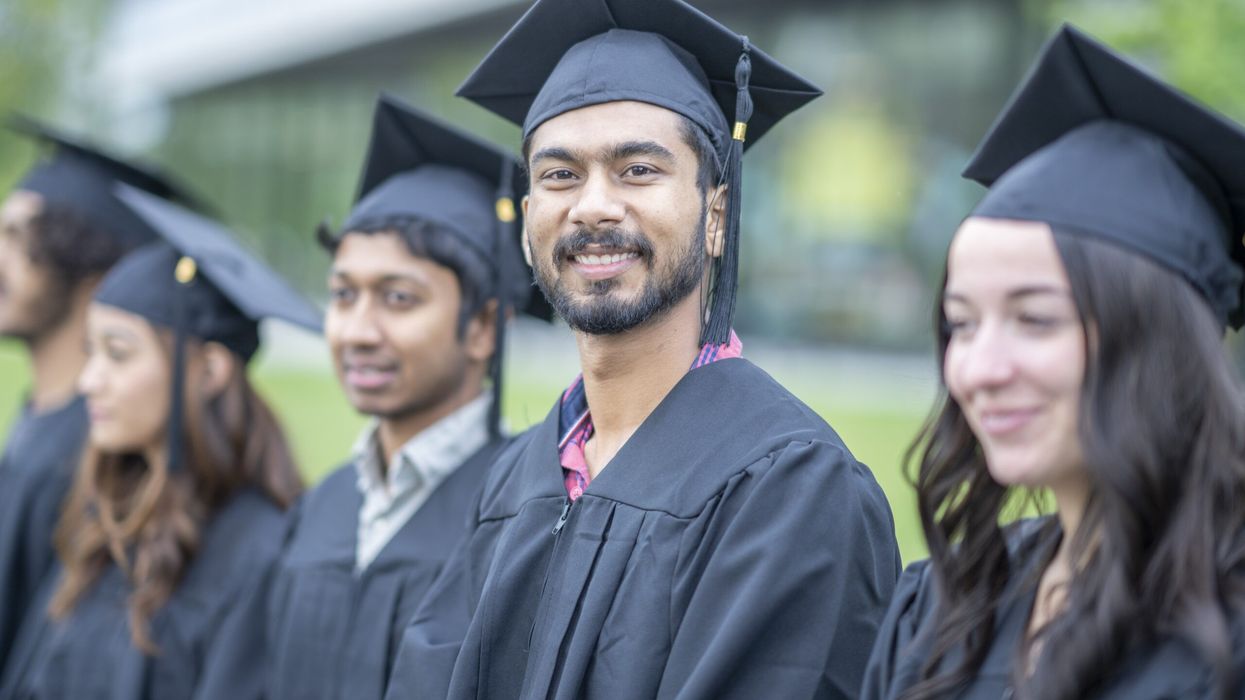International students should pay their tuition fees upfront to curb potential misuse of the visa system, former universities minister Lord Johnson of Marylebone has proposed. This suggestion arises as statistics reveal a one in four drop-out rate among students from India and Bangladesh.
Lord Johnson emphasised the need for overseas students to demonstrate financial stability throughout their course duration to prevent exploitation of the system.
Concerns have emerged due to high drop-out rates, indicating that some individuals secure student visas but abandon studies to pursue work opportunities, The Times reported.
While being registered with the institution, students are allowed to work up to 20 hours weekly, potentially continuing work without attending classes.
While the overall drop-out rates for foreign students mirror those from the UK at approximately 8 percent, there exists significant variation.
Rates range from 2 to 3 per cent for students from China and Singapore to 20 to 25 per cent for those from India and Bangladesh.
These figures, related to the pandemic period, highlight instances where students might have been compelled to discontinue studies due to the drying up of part-time work used to sustain themselves.
A visiting professor at King’s College London and a non-executive director at Dyson Institute of Engineering and Technology, Johnson highlighted that over the past three years, with the considerable rise in student enrollment from south Asia, there has been a corresponding increase in drop-out rates.
However, he added, there's room to enhance the system and effectively manage these dropout rates at this scale. “It’s achievable” he said.
He went on to say that it's in the best interest of all parties involved if students arrive adequately funded, minimising the probability of them resorting to work beyond the allowed 20 hours per week and subsequently dropping out.
The primary adjustment involves the requirement of overseas students to make a substantial upfront payment of their tuition fees. The second entails necessitating them to place their essential maintenance funding in an escrow account—similar to Canada's Guaranteed Investment Certificate system from which they can access funds during their academic tenure.
However, the primary concern lies in the potential freefall of international student enrollment.
UK institutions are witnessing a notable decline in demand from overseas, even before experiencing the full impact of recently disclosed changes in dependant rules, set to take effect in January.
Additionally, there are anticipations of rises in visa fees and health surcharges, adding to the impending challenges.
The fees collected from international students serve to subsidize domestic undergraduates, who have sustained a freeze in annual fees at £9,250 for over six years.
According to experts, the review announced by James Cleverly, the home secretary, regarding the visa allowing overseas graduates to stay and work for two years after completing their course, is likely to discourage Indian students, whose numbers have been steadily increasing in recent times.
It comes months after a ban was imposed on graduate students from bringing dependants, a move likely to impact the number of applications from Nigerian students.
According to figures from the Higher Education Statistics Agency, in 2014/15, UK universities hosted 18,400 Indian students and 3,740 from Bangladesh.
However, by 2021/22, these numbers had surged to 126,500 from India and 12,700 from Bangladesh. Nigeria also witnessed a significant increase, sending over 44,000 students to the UK in 2021/22, compared to 18,000 in 2014/15.
Former universities minister Johnson said there was increasing competition from countries like the US, Canada, Australia, and others teaching in English, all vying to attract overseas students.
He noted preliminary indications suggest a more than 50 per cent decline in demand from Nigeria for the upcoming year. This accumulation of factors paints a scenario where the numbers of UK international students appear to be significantly decreasing year by year.
While policy adjustments can address dropout rates, sustaining high international student numbers is an asset coveted by nations worldwide. “A genuine problem would be when we can’t attract them at all. That’s the territory we really do not want to enter,” he said.
Universities Minister Robert Halfon mentioned that the visa review aims to scrutinise potential system abuse and assess the job placements of graduates. He said the government was committed to fostering an environment conducive to international student arrivals.
Halfon said our objective is to ensure those who remain here secure meaningful graduate positions. We aim to evaluate the types of employment retained by those staying for two years. “At the end of the day, visa matters are matters for the Home Office, but we’re doing everything possible to support and encourage international students.”




